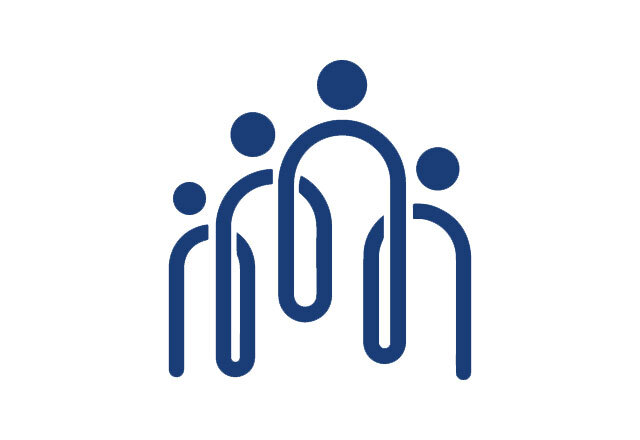Clinical Research: Why Take Part?

Medicine and patient care would not be where they are today without advances made through clinical research—medical studies that involve people. But clinical research is not possible without people who volunteer to participate. Johns Hopkins researchers ensure that our research participants are a key part of the clinical research team.
The findings from clinical research at Johns Hopkins Medicine add to the world’s knowledge about health, disease, prevention, and treatment.
Reasons People Take Part in Clinical Research
People volunteer to participate in clinical research for reasons that include:
Helping Others
They want to help researchers learn how patients in the future can have better outcomes.

Personal
They have a medical condition that a study is evaluating new treatments for. They hope it benefits their own health and/or the health of other people with the same condition.
Financial
Some clinical studies pay those who participate.
Many participants like the extra health care they receive during a study. When people participate in clinical research, they are monitored and cared for by both the research team and the medical staff helping with their overall care.
“Research participants are giving a gift to society.”
—Liz Martinez, Johns Hopkins Medicine Research Participant Advocate
Informed Consent
The choice to participate in a clinical study is a personal one that people should make willingly, without pressure from anyone else. Whether they are healthy or have been diagnosed with a medical condition, people should take part in clinical research only if they feel informed about and comfortable with the entire process.
Informed consent is the key part of all clinical research. It ensures that people are thoroughly informed about a research study they want to take part in — before they agree (or do not agree) to participate.
Members of the research team explain the study details to every potential participant. They go over the question(s) the study seeks to answer, the possible risks and benefits of taking part, and the intervention being tested. They also explain what participants will be required to do as part of the study.
Only after people indicate that they completely understand these details can they freely agree (or decline) to participate. Taking part in clinical research is always voluntary, and participants are free to leave a study at any time.
Here are some questions to ask before agreeing to participate in a clinical research study:
- What is the main purpose of this study?
- How long is the study going to last and what will I be asked to do as a participant?
- Does the study involve a placebo (a harmless procedure or pill used to compare against the real treatment being studied), or will it study a treatment that is already on the market? Will my doctor know which one is assigned to me?
- How will the research intervention be given to me?
- What has been learned about the research intervention so far? Have any study results been published?
- Do I have to pay for any part of the study? Will my insurance cover these costs?
- Does the study pay for travel costs or childcare?
- Will I be able to see my own doctor during the study?
- If the research intervention works for me, can I keep using it after the study?
- Will I receive any follow-up care after the study has ended?
- What will happen to my medical care if I stop participating in the study?
- Do the researchers have any financial or special interest in the clinical study?
- How experienced are the physician and study staff?
- What is the study team doing to keep me safe?
- When and how will the results of the clinical trial be given to me?
- In a trial that includes placebos, will I learn which treatment I am receiving?
- Can anyone find out whether I am participating in the research study?
You may have many more questions. Some of these questions may not apply to the study you are considering. The study team is eager to answer all of your questions before, during, and after a study.
Video Clinical Research for a Healthier Tomorrow: A Family Shares Their Story
Clinical Research for a Healthier Tomorrow: A Family Shares Their Story
How to Participate in a Clinical Research Study
Doctors or nurses
Family, close friends or a clergy member
Study research team
Clinical Research at Johns Hopkins Medicine
Johns Hopkins Medicine leads and takes part in all types of clinical research as well as many individual studies. Scientists at Johns Hopkins Medicine lead some of the most innovative clinical research studies. Some of these are only available at Johns Hopkins and have been developed by our experts. It is our commitment to moving medicine forward that drives our researchers to practice at the highest levels of responsibility for our clinical research.
We encourage people with medical conditions to talk with their doctors or with any of our research coordinators about current Johns Hopkins clinical research studies as soon as possible after their diagnoses. This is because many trials have certain rules to decide what types of participants they are looking for.
What do we know about the Research Participant experience at Johns Hopkins?
“Research participants are so important to the mission of Johns Hopkins that we have made it a priority to routinely get feedback from our research participants about their experience,” says Daniel Ford, .M.D., M.P.H., director of Institute for Clinical and Translational Research.
Starting in 2016, Johns Hopkins Medicine started a program to ask a random sample of research participants about their experience through a comprehensive survey.
- Over 1,000 people have completed this survey, and results indicate that the vast majority reported a satisfying experience.
- 80% rated their overall experience in research between 8 and 10 on a 10 point scale.
- 97% stated they would recommend a family member or friend to join a research study.
- 98% reported that the Institutional Review Board consent process prepared them for what they experienced in the study.
- They also gave high marks to the communication skills of the research team.
- A majority reported feeling they were valued members of the research team all of the time they were in a study.
The results of these surveys are available online.

